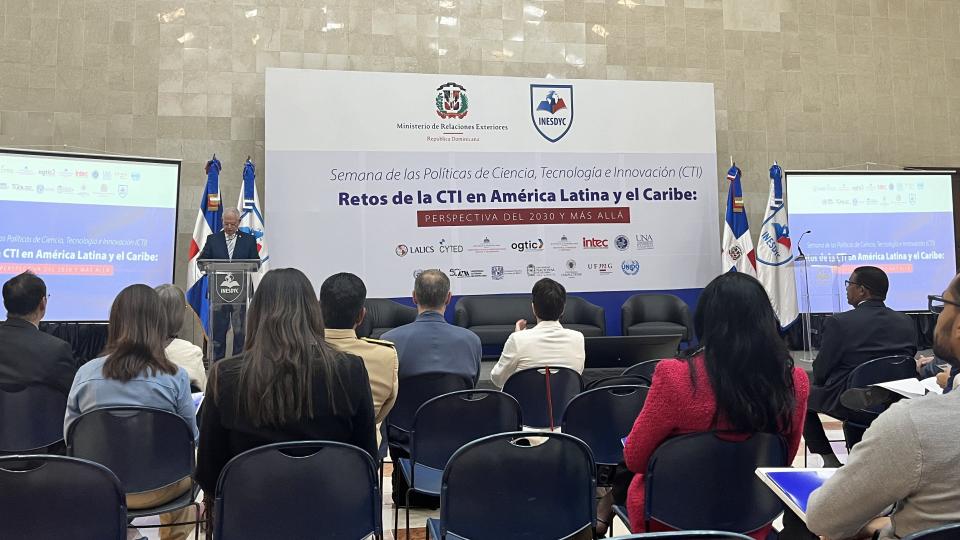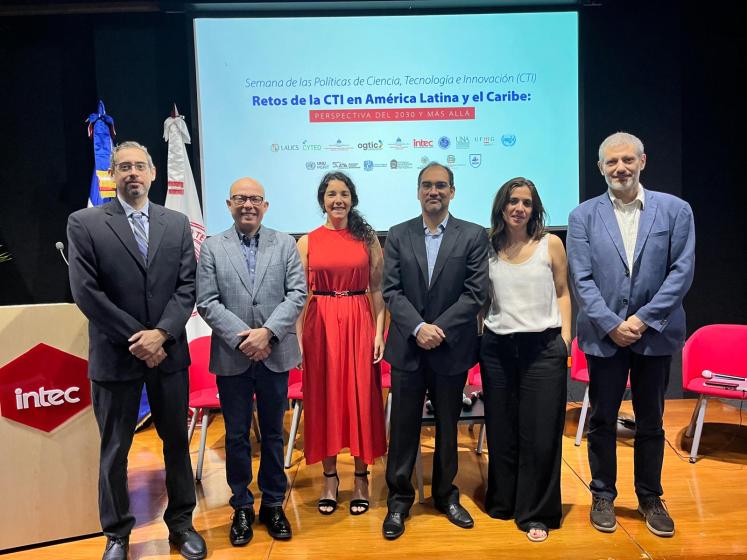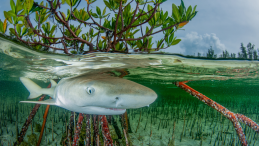Yesterday, Mercedes Menéndez (UNU-MERIT PhD fellow and member of our UNESCO Chair team) spoke at a policy-focused event in the Dominican Republic titled ‘Science, Technology and Innovation Week’, the theme of which was ‘Science, Technology and Innovation (STI) Challenges in Latin America and the Caribbean: Perspective for 2030 and Beyond’. This event – which took place on 12-15 November 2024 – was supported by UNU-MERIT's UNESCO Chair on STI for Sustainable Development in Latin America, the United Nations Industrial Development Organization (UNIDO), and the Ibero-American Science and Technology for Development Programme (CYTED). Regional and international experts participated, and the aim of the event was to promote dialogue and scientific cooperation between STI stakeholders, such as policymakers, academics and international organisations.
[Read more about the Science, Technology and Innovation Week and its context here.]

As part of this week-long event, Menéndez – together with Fernando Santiago (UNIDO), Diana Suarez (UNGS), Carlos Bianchi (UDELAR-LALICS) and Dr. Víctor Gómez-Valenzuela (INTEC/IPP-CSIC) – spoke at the UNESCO Chair / UNIDO seminar on ‘Innovation: Industrial Policy Challenges from STI for Latin America’. The meeting took place on 14 November at the Instituto Tecnológico de Santo Domingo.
Menéndez’s presentation focused on the challenges and opportunities that the ‘twin transition’ (the green and digital transitions) brings to the economic development of the Dominican Republic (DR). She stated that regarding the digital transition, the DR has made important progress, for example by including digitalisation in its development agenda – indeed, only seven countries in Latin America and the Caribbean have a national strategy for artificial intelligence (AI), and the DR is the first among the Caribbean countries to do so. In addition, the DR ranks 7th in the Latin American AI Index, qualifying as an ‘adopter country’, which means that the adoption of these technologies – as well as the research and policies to improve these technologies – are still in their infancy, implying that there is space to develop further digital capabilities.
Menéndez then presented new empirical evidence from the World Bank on the risk of automation by sector, highlighting that 70% of highly automated jobs are in the agricultural sector. From the perspective of the green transition, she highlighted the Caribbean country's exposure to climate change risks and the threats this could pose to the development of the Dominican economy. The role of green technologies was discussed – broadly understood as those that reduce greenhouse gas emissions or eliminate (and store) these gases from the atmosphere – in mitigating the effects of climate change. In this regard, Menéndez explained that the country is lagging in terms of new innovations, but highlighted the technological capabilities specifically developed by the Instituto Tecnológico de Santo Domingo (INTEC), which is the main holder of several patents related to renewable energy. She also gave some insights into the limitations in terms of DR’s dependence on fossil fuels in the energy matrix.
After her presentation, Menéndez debated with Fernando Santiago (UNIDO) and the audience further about the challenges that the DR is currently facing in its economic development, with special emphasis on how industrial policy is a key aspect of creating a ‘virtuous’ green and digital process.
Earlier this week, Menéndez had also participated in reviewing the content of the Santo Domingo Declaration, conceived as a non-binding contribution to the regional debate on STI with a view to the 10th Summit of the Americas, which will be held in the Dominican Republic at the end of 2025. The Declaration represents an opportunity for the Latin American Network for Economics of Learning, Innovation and Competence-Building Systems (LALICS) to develop a technical position on the role of STI in the development of the region.



